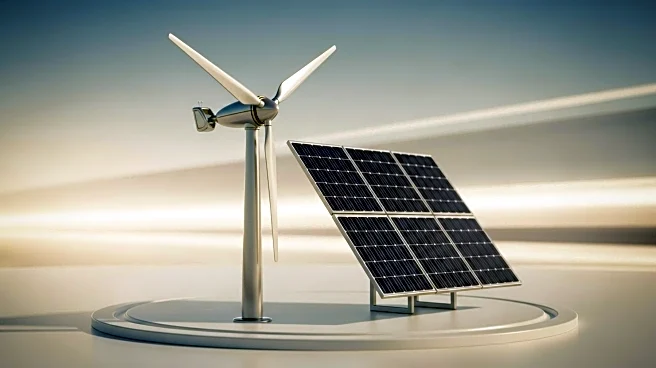What is the story about?
What's Happening?
The Internal Revenue Service (IRS) has issued guidance under the One Big Beautiful Bill Act (OBBBA) that accelerates the termination of clean electricity production and investment credits for wind and solar projects. The guidance specifies that facilities must begin construction by July 4, 2026, to avoid the accelerated termination provisions. The IRS has eliminated a previously provided safe harbor based on the percentage of total costs incurred, requiring taxpayers to demonstrate significant physical work by the deadline. The clean electricity production credit, under IRC Section 45Y, and the clean electricity investment credit, under IRC Section 48E, will be unavailable for facilities placed in service after 2027. This move aims to prevent taxpayers from circumventing the statutory credit termination date and ensure substantial construction progress by the deadline.
Why It's Important?
The IRS guidance has significant implications for the renewable energy sector, particularly for wind and solar projects. By accelerating the termination of tax credits, the guidance could lead to reduced investment in renewable energy infrastructure, potentially impacting the U.S. energy transition goals. Companies involved in wind and solar projects may face increased financial pressure to complete construction by the specified deadline, affecting project timelines and budgets. The guidance also reflects broader policy shifts under the OBBBA, which may influence future legislative and regulatory approaches to renewable energy incentives.
What's Next?
Stakeholders in the renewable energy sector will need to reassess their project timelines and financial strategies to comply with the new IRS guidance. Companies may accelerate construction efforts to meet the July 4, 2026 deadline, potentially leading to increased demand for construction services and materials. The IRS may issue further clarifications or adjustments to the guidance as stakeholders provide feedback. Additionally, the renewable energy industry may advocate for legislative changes to extend or modify the termination provisions, influencing future policy discussions.














